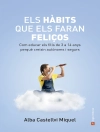In this volume, contributors reflect on how to teach and mediate difficult history from the perspectives of guides. Too often, their activities are undervalued and taken for granted. Guides represent an important, often forgotten group of educators. This volume takes a global view on guiding at memorial sites and museums in Europe, North America, and South Africa. The contributors to this volume show from different research traditions that it is worth understanding more about the guides’ personal interests, their motivations, and their concept of guiding. Authors apply methodologies from the social sciences to describe the guides’ point of view. Complementing the various approaches in tour guide research, a detailed linguistic analysis sheds light on a survivor’s testimony echoed in the guides’ language.
The studies gathered in this volume open up an orientation for further approaches to tour guiding based on and centered around “authentic” materials from guides.
Содержание
Europe: “Authenticity” at German sites.- The memorial site of Dachau: Competition among tour guides.- Language as action: How guides talk to female students at memorial sites .- Education and Commemoration: Site educators in Germany.- The pedagogy in Austria: How do teachers as tour guides react?- From Peer Guides to Professionals: The Anne Frank House and its staff in Berlin.-Poland: Memorial Site Auschwitz. A trip into horror.- Israel: Tour Guides in Yad Vashem.- “Monster” of Yishai Sarid. A Grounded Theory-Sketch.- North Amercia & South Africa: The USHMM and Chicago Holocaust Museum: A comparison.- The Neuberger Holocaust Education Center: The perspective of the head of education.- Guiding at the Durban Holocaust & Genocide Centre.
Об авторе
Anja Ballis, Ph D, professor and chair of German Language Education at the University of Munich. The focus of her research has been on Holocaust education, teaching with digital media, and textbook research. She is also known for her research on interactive 3D testimonies, tour guides at Holocaust museums and memorial sites and as an editor of “Holocaust Education—Historical Learning—Human Rights Education” (since 2019, Springer Science).












